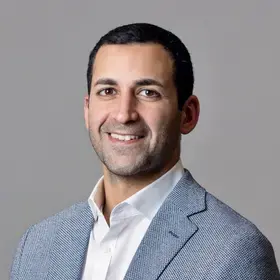Dr. Naila Ramji, MD, CM, FRCSC, MSc had been a medical doctor for years—specializing in obstetrics and gynecology—before she learned about bioethics. While attending an American Society for Bioethics and Humanities conference Dr. Ramji had the revelation, “Oh my goodness, these are my people!”
In that moment, she decided to place a bioethical lens at the center of her clinical field of study and research. That decision led her to the Bioethics M.S. program at Columbia University, where she earned her degree in 2019. Dr. Ramji is currently a Maternal-Fetal Medicine Specialist and Assistant Professor at Dalhousie University. She recently discussed her time in the Bioethics program and how she applies her degree daily in her profession.
What was your experience like as a student from Canada? Why did you choose Columbia’s program in New York, in particular?
I had a positive experience as a student from Canada because I found my professors and peers were open to hearing about the Canadian perspective and engaging with different ideas and approaches. It made me feel like my work and my context had relevance to what we were learning. It's so important to remember that bioethics crosses national and cultural boundaries and that the American value system and context do not represent the only "right" way to approach complex problems.
"I chose Columbia's program because it was one of few master's programs that had a course in reproductive bioethics available."
Who was your favorite Bioethics professor (or class) and why?
I appreciate the different perspectives and approaches of many of my professors and learned a lot from all of them. I particularly enjoyed Arthur Kuflik's courses because of the strong philosophical basis involved. A lot of the world-class bioethics programs, including Ph.D. programs and fellowships, have a strong philosophical, reasoning/analytical foundation, and teach students to think like a bioethicist. Being able to understand opposing views in various scenarios and look for common ground is so essential. Legal, clinical, practical/research approaches provide insight as other tools in our "toolbox," but that philosophical foundation grounds the rest of that work.
A few years ago, you transitioned from OB/GYN to specializing in maternal-fetal medicine. What led you to specialize in this area?
I have always had an interest in the complexity of clinical cases within the context of high-risk pregnancies. I also don't particularly enjoy the gynecology side of the specialty. I enjoy the clinical challenges of maternal-fetal medicine, the acuity of obstetrics/labor and delivery, the life and death existential moments that are so pervasive in this particular subspecialty.
How does the field of bioethics come up in your position as a Maternal-Fetal Medicine Specialist?
Bioethical dilemmas present themselves all the time in my work. Decisions around resuscitation close to viability for very premature babies versus palliative comfort care, management of congenital anomalies detected prenatally, the question of whether or not to recommend invasive prenatal genetic testing when it cannot provide definitive prognostic information... the field is rich with such questions! The COVID-19 pandemic has added to the complexity of many of these clinical dilemmas.
How has your experience at Columbia impacted your career since graduating?
Very much so. I enjoy continuing to be involved with the program at Columbia by having the opportunity to give guest lectures, co-advising for theses, and attending board meetings. I have integrated bioethical perspectives into my research collaborations. I have successfully obtained a cross-appointment in the Department of Bioethics at Dalhousie University, where I am currently an Assistant Professor in the Faculty of Medicine. In my interactions with students and medical trainees, I also try to integrate bioethical questions and discussion within the context of clinical teaching.
Has there been anything that pleasantly surprised you about the program that you wanted to share?
I didn't expect to meet so many wonderful and interesting students and professionals among my peers! I learned so much from all of them and made some wonderful friends, even while taking the entire degree online.


